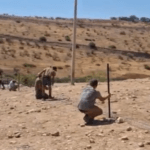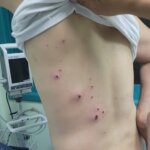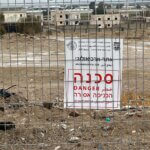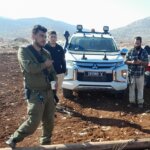“I am the court, I am the judge, I am the one who decides.”
Occupation forces have destroyed 320 Palestinian olive trees in Bardala village, northern Jordan Valley.
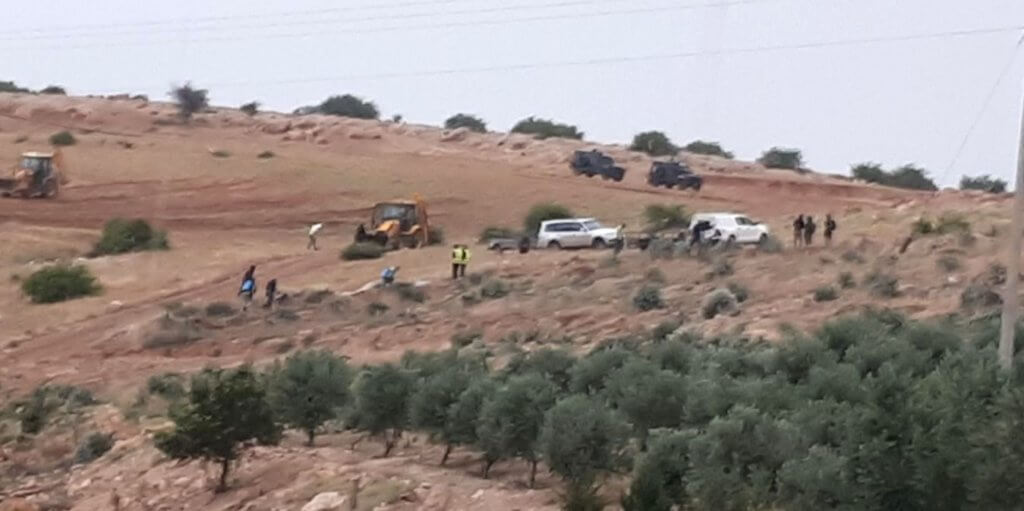 At 6am on 25th April 2018, Israeli Occupation Forces destroyed 320 olive trees in Bardala village in the north of the Jordan Valley. Seventy soldiers, as well as border police, arrived with ten military vehicles and three JCB bulldozers. The military closed off a six kilometre area, as well as the Tayasir checkpoint, obstructing access to and from the Jordan Valley.
At 6am on 25th April 2018, Israeli Occupation Forces destroyed 320 olive trees in Bardala village in the north of the Jordan Valley. Seventy soldiers, as well as border police, arrived with ten military vehicles and three JCB bulldozers. The military closed off a six kilometre area, as well as the Tayasir checkpoint, obstructing access to and from the Jordan Valley.
The soldiers pointed their guns at local Palestinians, while a teargas launcher stood ready, mounted on top of a vehicle. The military bulldozed 100 of the trees and took them away in a trailer. 220 others were cut down by an electric saw whilst a surveillance drone filmed from above.
Hussain Sawaftah’s family had been caring for the land, which was allocated to them by the Bardala community. The trees were up to seven years old, and many were giving olives. Hussain was in the packing house next to the olive grove when the military arrived.
The head of the Israeli District Coordinating Office (DCO) and workers from the Israeli Civil Adminstration (ICA) accompanied the military. Hussain asked the DCO official to show him a court order giving permission to destroy the trees. The official replied, “I am the court, I am the judge, I am the one who decides.”
The previous day, an ICA official came to the village, warning Hussain’s family that the trees would be destroyed. The family had also received an order from the ICA 48 days before, instructing them to remove the trees, which were planted in Area C of the village.
“This is land that belongs to the people of the village. Destroying the olive trees is part of a policy to kick us out of our land,” Hussain told Jordan Valley Solidarity. We asked Hussain whether he plans to plant the trees again. “We only have this field. Of course we will plant the trees again.”
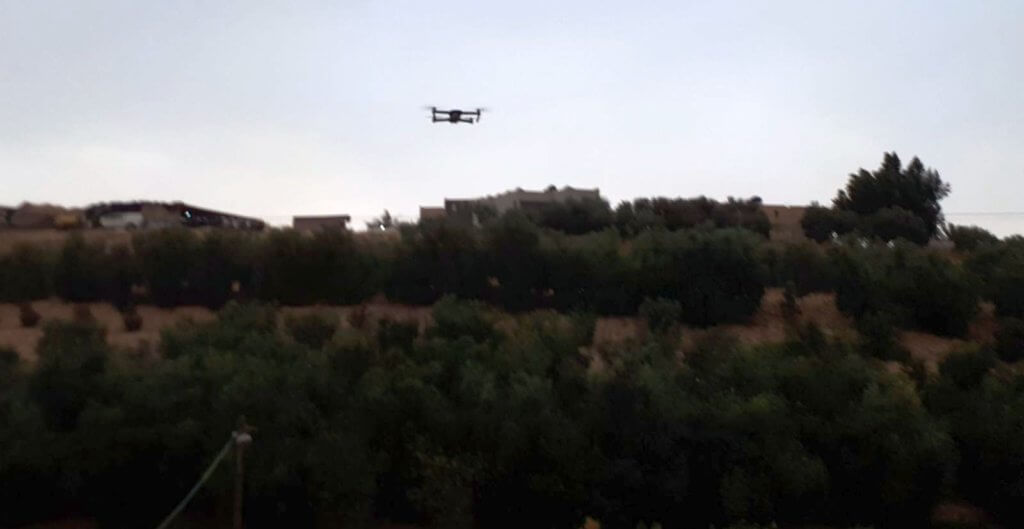 Abu Sakr, from the Popular Committee of the Jordan Valley, said that olive trees need to be ten years old, or more, before they produce a full harvest. Even if people plant the trees again, it will be years before they reach maturity.
Abu Sakr, from the Popular Committee of the Jordan Valley, said that olive trees need to be ten years old, or more, before they produce a full harvest. Even if people plant the trees again, it will be years before they reach maturity.
Hussain told us that chemicals had been sprayed on the trees which had been cut down to prevent him from replanting them.
Abu Sakr told us: “The people of the village have been here for hundreds of years.” He explained that Bardala was an agricultural community, but that the Israeli occupation forces targeted Palestinian producers. He said: “They want to fill our markets in the West Bank with Israeli products, which is bad for our economy.” Palestinian products cannot compete.
Abu Sakr continued, “Ten years ago we started growing guava, grapes and olives. It was a strategy to protect our local economy.” These are products which are not commonly produced in the Israeli economy, so there is still a market for them. “The olive trees protect the family’s household needs, providing fruit and olive oil.”
“The Israelis already destroyed the market for Palestinian vegetables, and if we need to buy the olives and oil too it will destroy us – we’ll have no more money. If they destroy our economy we can’t send our kids to school, we can’t go to the doctor, they’ll destroy our whole lives.”

